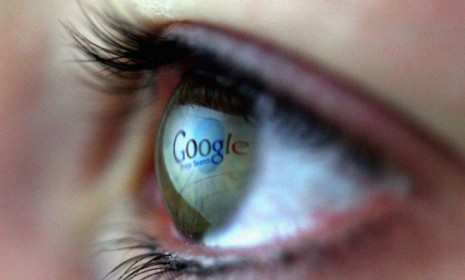Has Google made us lose our minds?
The internet's promise of finding any answer within seconds is revolutionizing the way we remember things — for both better and worse

A free daily email with the biggest news stories of the day – and the best features from TheWeek.com
You are now subscribed
Your newsletter sign-up was successful
Our brains are succumbing to the "Google Effect," says Columbia University psychologist Betsy Sparrow and two colleagues in the journal Science. Google, and more generally, the almost unlimited amount of web-based knowledge immediately available at our fingertips, is literally changing our minds, and especially how we remember — or, more accurately, don't remember — facts, figures, and other bits of info. How? Here, a quick guide to the groundbreaking new study:
What's the researchers' argument?
With easy access to almost any piece of information online, people are adapting to remember fewer things. One thing we don't forget: Where to find information we no longer recall.
The Week
Escape your echo chamber. Get the facts behind the news, plus analysis from multiple perspectives.

Sign up for The Week's Free Newsletters
From our morning news briefing to a weekly Good News Newsletter, get the best of The Week delivered directly to your inbox.
From our morning news briefing to a weekly Good News Newsletter, get the best of The Week delivered directly to your inbox.
How did they come to this conclusion?
They conducted four experiments with Harvard and Columbia undergraduates. In one, the researchers had a group of students type bits of trivia into a computer, telling half of them that the information would be erased and the other half that it would be saved. The people in the "erased" group were 40 percent more likely to remember the trivia, suggesting that people who expect computers to save data don't bother committing it to memory. In other experiments, Sparrow and colleagues found that students were better at remembering whether a piece of information was stored on a computer, and the specific folder in which it was stored, than they were at recalling the information itself.
What does this tell us about our brains?
It "doesn't prove that Google, Yahoo, or other search engines are making us dumber, as some have asserted," says Lisa M. Krieger in the San Jose Mercury News. Instead, the researchers say, it means we are starting to use our laptops and smartphones as a "form of external or transactive memory," and "becoming symbiotic with our computer tools." Also, adds Sparrow, we're "becoming particularly adept at remembering where to go find things. And that's kind of amazing."
A free daily email with the biggest news stories of the day – and the best features from TheWeek.com
What is transactive memory?
Essentially, it's memory you've outsourced to other people — friends, family, colleagues — so that facts and expertise can be distributed among members of a group. "I love watching baseball," Sparrow says, by way of example. "But I know my husband knows baseball facts, so when I want to know something I ask him, and I don't bother to remember it." It's the same thing with Google, she adds. "The internet is really just an interface with a lot of other people."
Should we mourn our weakening memory?
Not necessarily. There is an element of "goodbye, soul-searching; hello, facts-at-fingertips" about the way we are evolving, says Krieger at the Mercury News. On the down side, outsourcing our memories to computer servers means "we must remain plugged in to know what Google knows." But freeing up our brain from rote learning could also create space for other things, like creative endeavors, says Kyle Niemeyer at Ars Technica. So "who's to say these developments aren't also a good thing?"
Sources: Ars Technica, LA Times, New York Times, San Jose Mercury News, Washington Post, Wired